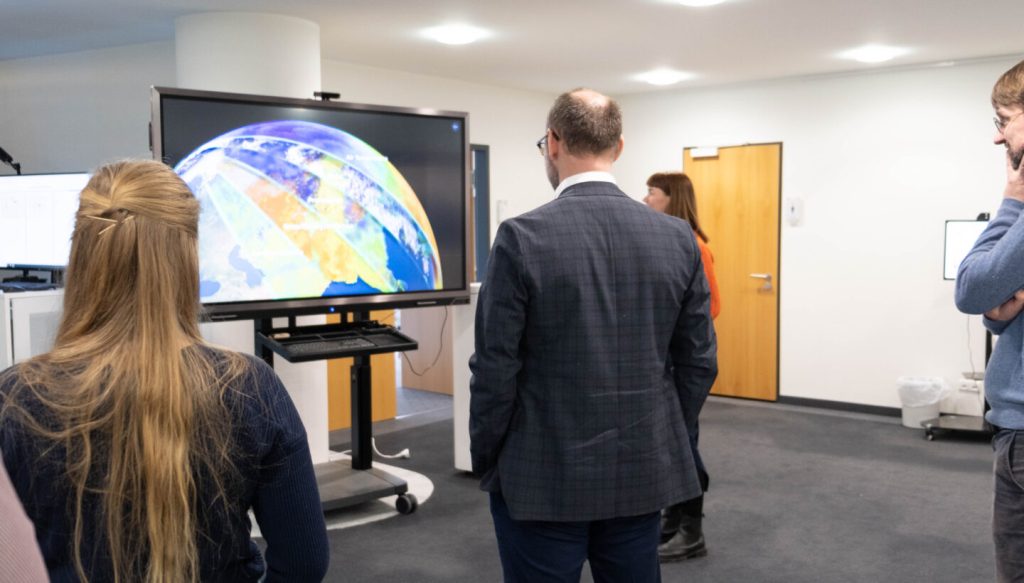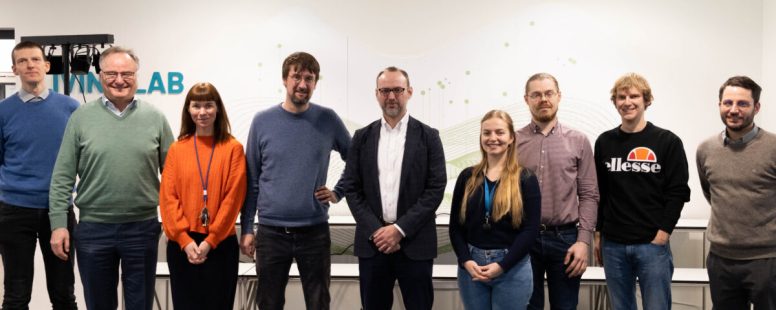Vanderbilt University visits ScaDS.AI Dresden/Leipzig
At the end of 2024, a delegation from Leipzig University visited Vanderbilt University in Nashville, Tennessee, to extend the cooperation agreement between the two universities and expand it to other faculties and research centers. In return, Leipzig University welcomed a delegation from Vanderbilt University, which also stopped off at ScaDS.AI Dresden/Leipzig for cooperation talks and a tour of our Living Lab on 10.02.2025.
In addition to Jon Shaw, Director of Vanderbilt University’s Jean and Alexander Heard Libraries, which include nine campus libraries and several research facilities such as the Digital Lab, the Digital Archive of Slave Societies and the Vanderbilt Television News Archive, we were able to welcome Moritz Hagen Waschbüsch, Advisor to the Vice-Rector for Campus Development: Cooperation and Internationalization at Leipzig University.
Demonstrator presentation @Living Lab Leipzig
In between strategic discussions, Dr Josefine Umlauft, Miriam Louise Carnot, Dr Arthur Fleig and Jonas Kunze presented their research using demonstrators and exchanged views on possible future collaborations.
- Dr Josefine Umlauft presented the Earth System Data Cube project, which has become a popular tool in Earth System Science in recent years, as it greatly facilitates data visualization and (interoperable) data handling, including pre-processing or statistical analysis.
- Miriam Louise Carnot and Jonas Kunze showed their transfer and service project DiGuRal, which aims to provide data on stationary and moving traffic to the Urban Data Platform (UDP) of the city of Leipzig, as well as to interested parties from industry and municipalities. They prozess, harmonize and combine existing and newly collected data and anonymize them to use the data sets to promote safe and efficient evaluation of road space and intelligent traffic management for the city of Leipzig.
- Junior Research Group Leader Dr Arthur Fleig presented the newly established Motion Capture Laboratory. In the Laboratory, he uses state-of-the-art cameras to precisely measure movements in order to better model interactions with computers and robots, for example.

Miriam Louise Carnot shows her research in the DiGuRal project using a demonstrator.

Dr Josefine Umlauft presents the Earth System Data Cube project.

